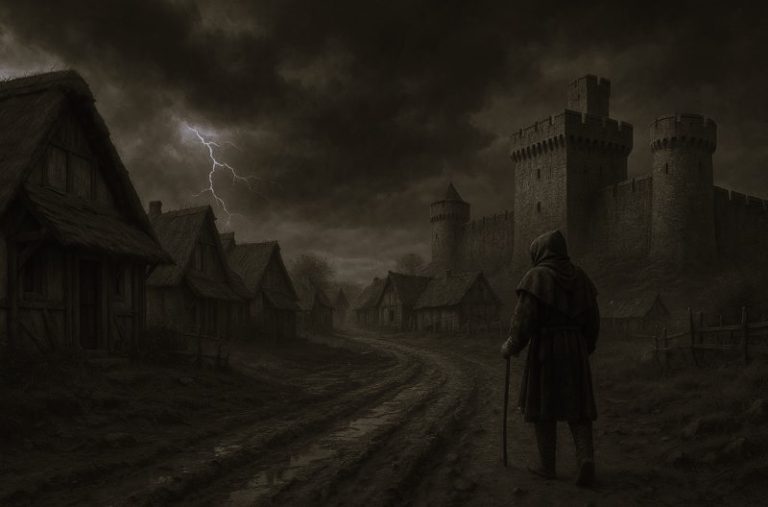

The diary entry by Matthew Tomlinson suggests that recognisably modern understandings of homosexuality were being discussed by ordinary people earlier than is commonly thought.
Mr Tomlinson was a farmer at Dog House Farm, which is on the site where a golf course now stands near Wakefield in West Yorkshire. He wrote the entry on 14 January 1810 in response to media reports of the execution of a naval surgeon for sodomy.
Mr Tomlinson wrote: ‘It appears a paradox to me, how men, who are men, shou’d possess such a passion; and more particularly so, if it is their nature from childhood (as I am informed it is) – If they feel such an inclination, and propensity, at that certain time of life when youth genders [i.e. develops] into manhood; it must then be considered as natural, otherwise, as a defect in nature … it seems cruel to punish that defect with death.’
Mr Tomlinson goes on to question how God could allow such severe penalties for a divinely-ordained trait.
The passage was uncovered by Eamonn O’Keeffe, an AHRC-funded doctoral student in the History Faculty at the University of Oxford, while undertaking his PhD research in Wakefield Library. Although historians have written about other parts of the Tomlinson diary, this passage has not previously been brought to light.
Mr O’Keeffe said: ‘In this diary we see a Yorkshire farmer arguing that homosexuality is innate and something that should not be punished by death. While Tomlinson’s writings reflect the opinions of only one man, his phrasing – ‘as I am informed it is’ – implies that his comments were informed by the views of others.

‘This exciting discovery complicates and enriches our understanding of Georgian attitudes towards sexuality, suggesting that the revolutionary conception of same-sex attraction as a natural human tendency, discernible from adolescence, was mooted within the social circles of an ordinary Yorkshire farmer.’
There are examples of similar arguments being made around this period. Utilitarian philosopher and social reformer Jeremy Bentham contended in manuscript notes that there was “no reason for punishing” sodomy, although he did not dare publish such radical views in his lifetime. But the Tomlinson diary provides evidence that similar conversations were happening outside the elite circles of Bentham and Lord Byron.
Experts in the field are excited about the discovery. Professor Fara Dabhoiwala, a historian at Princeton University with expertise in the history of changing sexual attitudes and behaviour, said: ‘This wonderful archival find by Eamonn O’Keeffe provides vivid proof that, even during times of severe persecution, historical attitudes to same-sex behaviour could be more sympathetic than is usually presumed. Matthew Tomlinson’s diary illustrates that, by 1810, even an ordinary Yorkshire farmer could seriously entertain the idea that homosexuality was not a horrible perversion that deserved the death penalty, but simply a natural, divinely ordained human quality.’
Dr Rictor Norton, an expert on the history of homosexuality in this period, said “the view that homosexuality was a natural inclination was rarely so clearly expressed” as in Tomlinson’s writings. ‘It is extraordinary to find an ordinary, casual observer in 1810 seriously considering the possibility that sexuality is innate and making arguments for decriminalisation,’ he added. ‘Tomlinson’s diary reflections on homosexuality are unique for their time.’
Mr O’Keeffe says there are parallels between the diary passage and more modern debates over equality.
‘What I find so fascinating about Tomlinson’s reflections is that he anticipates some of the arguments that have been deployed so successfully in recent decades by proponents of LGBT equality and marriage rights to argue for greater acceptance and celebration of sexual diversity,’ he said. ‘The diary suggests that recognisably modern ideas about sexuality were in circulation in British society more widely and at an earlier date than is often believed.’
Tomlinson wrote this passage in response to newspaper reports of the court-martial and execution of naval surgeon James Nehemiah Taylor, who was hanged from the yard-arm of HMS Jamaica on 26 December 1809 for committing sodomy with his young servant. Newspapers in Britain and Ireland published accounts of the case, reminding readers of the draconian state penalties for homosexual behaviour.
Mr O’Keeffe added: ‘Contemporary media reporting on sodomy cases, often couched in the language of moral panic, both reflected and reinforced social stigma against same-sex intimacy, but Tomlinson’s writings suggest that not all readers uncritically accepted the homophobic assumptions they encountered in the press.’
Some of Tomlinson’s reflections were still the product of their time, however. Although the diarist seriously considered the proposition that sexual orientation was innate, he nonetheless allowed for the possibility that homosexuality might be a choice and therefore (in his view) deserving of punishment. Tomlinson even pondered whether capital sentences for sodomy should be replaced by the still gruesome alternative of castration.
The diaries are held in Wakefield Library, and librarian Claire Pickering said: ‘I am delighted that this discovery has been made. It’s not the first time Tomlinson’s diaries have come to the attention of academia for their provincial non-conformist outlook and thoughtful self-expression, but I’m delighted that a new audience will be exposed to them with an interest in LBGTQ histories.’
The death penalty was abolished for acts of sodomy in 1861, when they were instead made punishable by a minimum of 10 years imprisonment. In 1885, all male homosexual acts were declared illegal, even in private. More information on legislation against homosexuality can be found on the British Library’s website.
Originally published by University of Oxford, News and Events, 02.10.2020, republished under non-indexable fair use for educational, non-commercial purposes.






